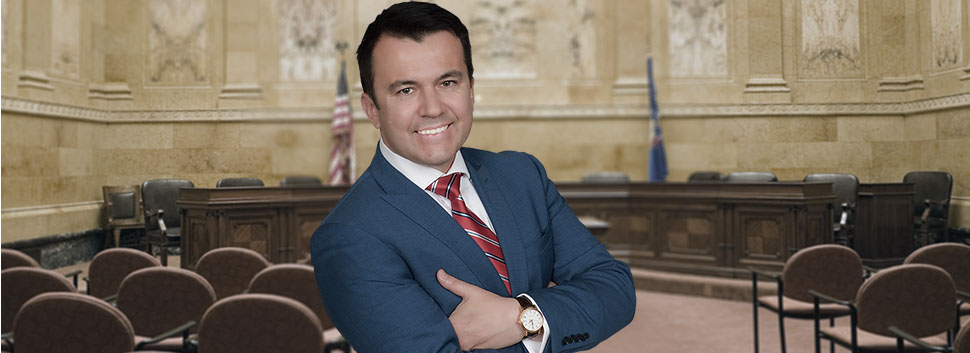Can an Idea be Protected Under the Law?
In the realm of filmmaking, one frequently asked question is whether an idea can receive legal protection. As an intellectual property attorney, I often address this intriguing issue, which involves understanding the nuances of federal copyright law.
Federal Copyright Law: Protecting the Expression, Not the Idea
The key principle in federal copyright law is the distinction between an ‘idea’ and its ‘expression’. This law protects the expression of ideas, not the ideas themselves. For filmmakers, this means that while a general plot concept, like a romantic comedy set in New York or California, is not protected, the actual script with its unique dialogue, character development, and scene descriptions, is.
Why is this distinction crucial for filmmakers? It emphasizes the importance of converting a raw idea into a tangible form. As soon as a filmmaker documents their concept into a script, storyboard, or detailed treatment, it becomes eligible for copyright protection. This protection provides legal recourse against anyone who copies the specific expression of their idea without permission.
However, the limitations of copyright protection must be acknowledged. Copyright does not prevent others from creating their own works based on similar ideas, provided that their expressions of these ideas are original. For instance, various films can explore time travel without infringing upon each other’s copyrights, as long as their scripts and characters are uniquely their own.
While federal copyright law focuses on the expression of ideas, California law introduces an intriguing concept for protecting ideas under certain conditions, particularly relevant in the context of filmmaking.
California Law and the Protection of Ideas
This approach in California law recognizes the value of ideas in the creative industry, offering a layer of protection beyond what is available under federal copyright law.
In California, the protection of ideas in filmmaking can be addressed through the lens of the implied contract theory, as established in the landmark Desny v. Wilder case. According to this theory, when a person pitches an idea to a producer or studio with the understanding that they will be compensated if the idea is used, an implied contract is formed. This means that if the producer uses the idea without compensation, they could be liable for breach of contract.
This approach in California law recognizes the value of ideas in the creative industry, offering a layer of protection beyond what is available under federal copyright law. It provides a legal basis for idea creators to seek compensation if their concepts are adopted and used without their consent and without appropriate compensation.
For filmmakers and idea creators in California, this means that when presenting an idea to potential buyers or collaborators, it is crucial to establish the expectation of compensation upfront. This could be done verbally, but ideally, it should be documented to strengthen the case for an implied contract.
Having explored federal copyright law and California’s unique approach to protecting ideas through implied contracts, it’s also important to consider how ideas are treated under New York law, another major hub for the film industry.
New York Law: Idea Protection in the Empire State
In New York, the legal protection of ideas, particularly in the context of filmmaking and the creative arts, is less straightforward than in California. Unlike California, which has established legal precedents for protecting ideas under implied contract theories, New York law tends to be more conservative in this regard.
Generally, New York courts do not recognize a claim for idea misappropriation unless the idea is both novel and concrete. Novelty here means that the idea must be truly unique and not a variation of something already in the public domain. Concreteness, on the other hand, requires the idea to be well-developed and detailed, rather than a vague or general concept.
Furthermore, New York law typically requires a clear and explicit agreement, rather than an implied one, for the transfer of rights or claims to compensation. This means that for filmmakers and creatives in New York, it’s crucial to have detailed written contracts when pitching or sharing ideas. These contracts should explicitly state the terms of use, compensation, and ownership of the idea.
However, it’s important to note that the bar for proving novelty and concreteness in New York is quite high. This makes it challenging for individuals to claim ownership and seek compensation for ideas alone, especially in industries like filmmaking where similar concepts are often independently developed by multiple parties.
In summary, while New York law does provide a pathway for the protection of ideas in filmmaking, it sets a high standard for what constitutes a protectable idea and typically requires explicit contractual agreements. Filmmakers in New York should be particularly diligent in documenting their ideas and ensuring clear contractual arrangements when engaging in creative collaborations or pitches.
The Bottom Line
The journey through the legal landscape of idea protection in filmmaking reveals a complex and varied terrain. From the overarching principles of federal copyright law to the more nuanced approaches in California and New York, it’s clear that the answer to “Can an idea be protected under the law?” is not a simple yes or no.
Due to the legal complexities surrounding the protection of ideas, big studios typically refrain from accepting unsolicited inquiries, pitches, or submissions from the public. Instead, they accept them from entertainment lawyers, agents, and established distributors.
Key Takeaways:
- Federal Copyright Law: It offers protection for the tangible expression of ideas, not the ideas themselves. Filmmakers should focus on documenting their ideas into scripts, storyboards, or treatments to avail of this protection.
- California Law: It provides a unique avenue for idea protection through the implied contract theory, especially if there’s an understanding of compensation for the use of an idea. This approach is particularly beneficial in cases where ideas are pitched with the expectation of monetary compensation if used.
- New York Law: While offering some protection for ideas, it demands a higher standard for novelty and concreteness and typically requires explicit contractual agreements. This underscores the importance of having detailed and clear contracts when sharing or pitching ideas in New York.
In conclusion, while raw ideas may not find shelter under the umbrella of federal copyright law, certain state laws, like those in California, offer a ray of hope for idea protection under specific conditions. However, the best practice for filmmakers and creatives remains to thoroughly document their ideas and ensure clear contractual arrangements. This approach not only provides the best chance for legal protection but also promotes a clear understanding and respect among all parties involved in the creative process. Understanding and navigating these legal nuances are essential for filmmakers and creatives to protect their valuable ideas and foster a healthy, innovative, and legally compliant creative environment.








